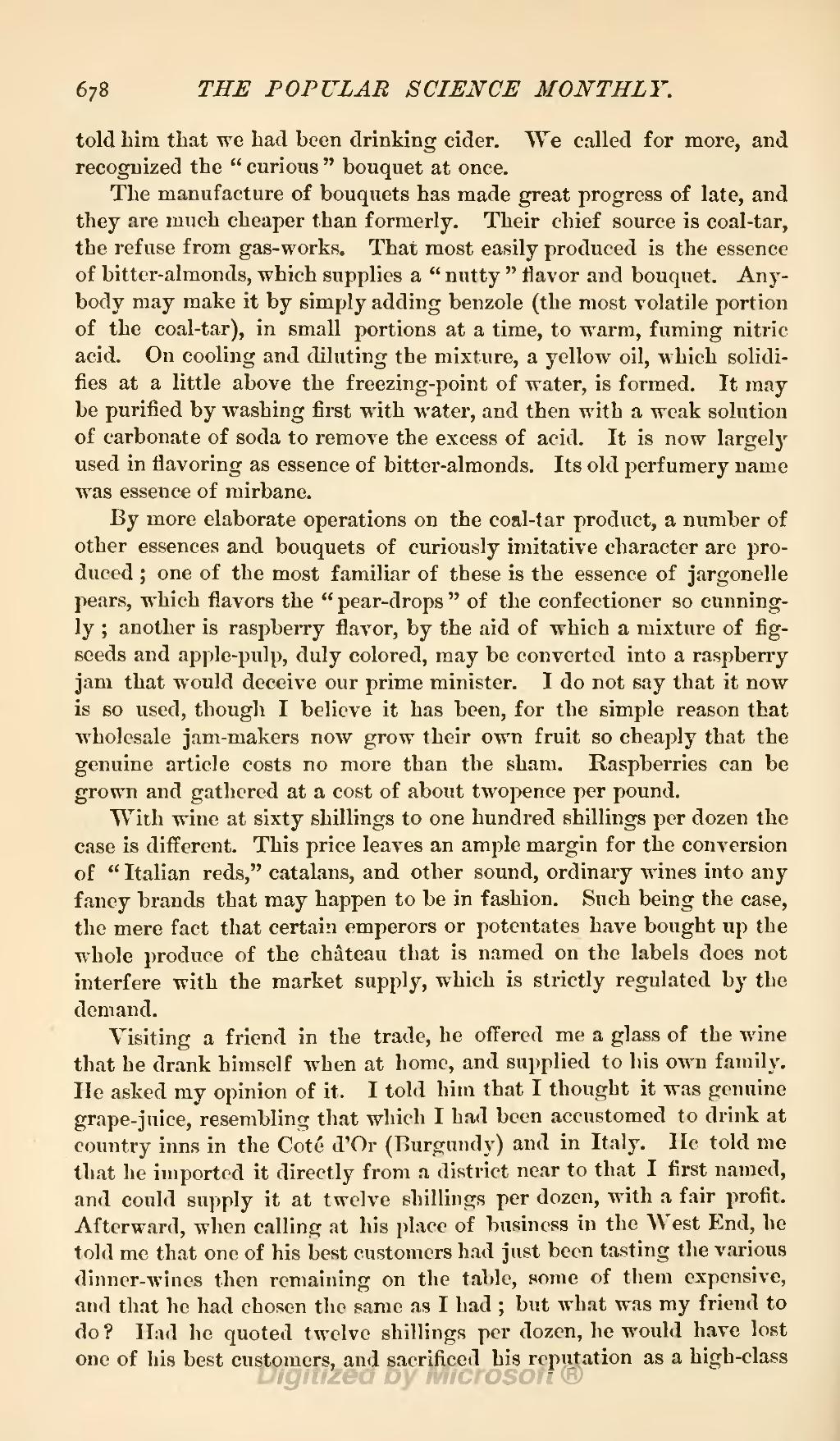told him that we had been drinking cider. We called for more, and recognized the "curious" bouquet at once.
The manufacture of bouquets has made great progress of late, and they are much cheaper than formerly. Their chief source is coal-tar, the refuse from gas-works. That most easily produced is the essence of bitter-almonds, which supplies a "nutty" flavor and bouquet. An}-body may make it by simply adding benzole (the most volatile portion of the coal-tar), in small portions at a time, to warm, fuming nitric acid. On cooling and diluting the mixture, a yellow oil, which solidifies at a little above the freezing-point of water, is formed. It may be purified by washing first with water, and then with a weak solution of carbonate of soda to remove the excess of acid. It is now largely used in flavoring as essence of bitter-almonds. Its old perfumery name was essence of mirbane.
By more elaborate operations on the coal-tar product, a number of other essences and bouquets of curiously imitative character are produced; one of the most familiar of these is the essence of jargonelle pears, which flavors the "pear-drops" of the confectioner so cunningly; another is raspberry flavor, by the aid of which a mixture of fig-seeds and apple-pulp, duly colored, may be converted into a raspberry jam that would deceive our prime minister. I do not say that it now is so used, though I believe it has been, for the simple reason that wholesale jam-makers now grow their own fruit so cheaply that the genuine article costs no more than the sham. Raspberries can be grown and gathered at a cost of about twopence per pound.
With wine at sixty shillings to one hundred shillings per dozen the case is different. This price leaves an ample margin for the conversion of "Italian reds," Catalans, and other sound, ordinary wines into any fancy brands that may happen to be in fashion. Such being the case, the mere fact that certain emperors or potentates have bought up the whole produce of the château that is named on the labels does not interfere with the market supply, which is strictly regulated by the demand.
Visiting a friend in the trade, he offered me a glass of the wine that he drank himself when at home, and supplied to his own family. He asked my opinion of it. I told him that I thought it was genuine grape-juice, resembling that which I had been accustomed to drink at country inns in the Coté d'Or (Burgundy) and in Italy. He told me that he imported it directly from a district near to that I first named, and could supply it at twelve shillings per dozen, with a fair profit. Afterward, when calling at his place of business in the West End, he told me that one of his best customers had just been tasting the various dinner-wines then remaining on the table, some of them expensive, and that he had chosen the same as I had; but what was my friend to do? Had he quoted twelve shillings per dozen, he would have lost one of his best customers, and sacrificed his reputation as a high-class
